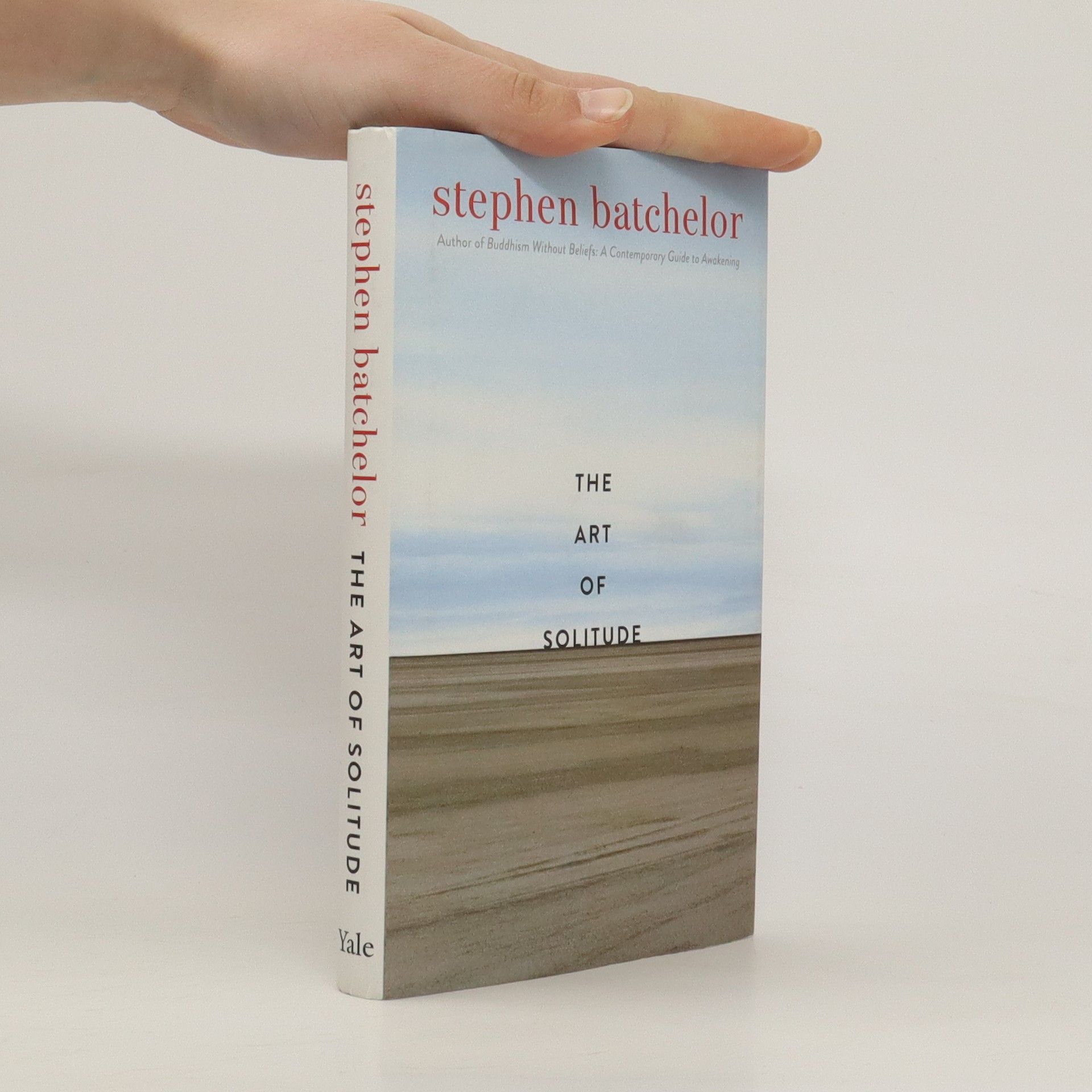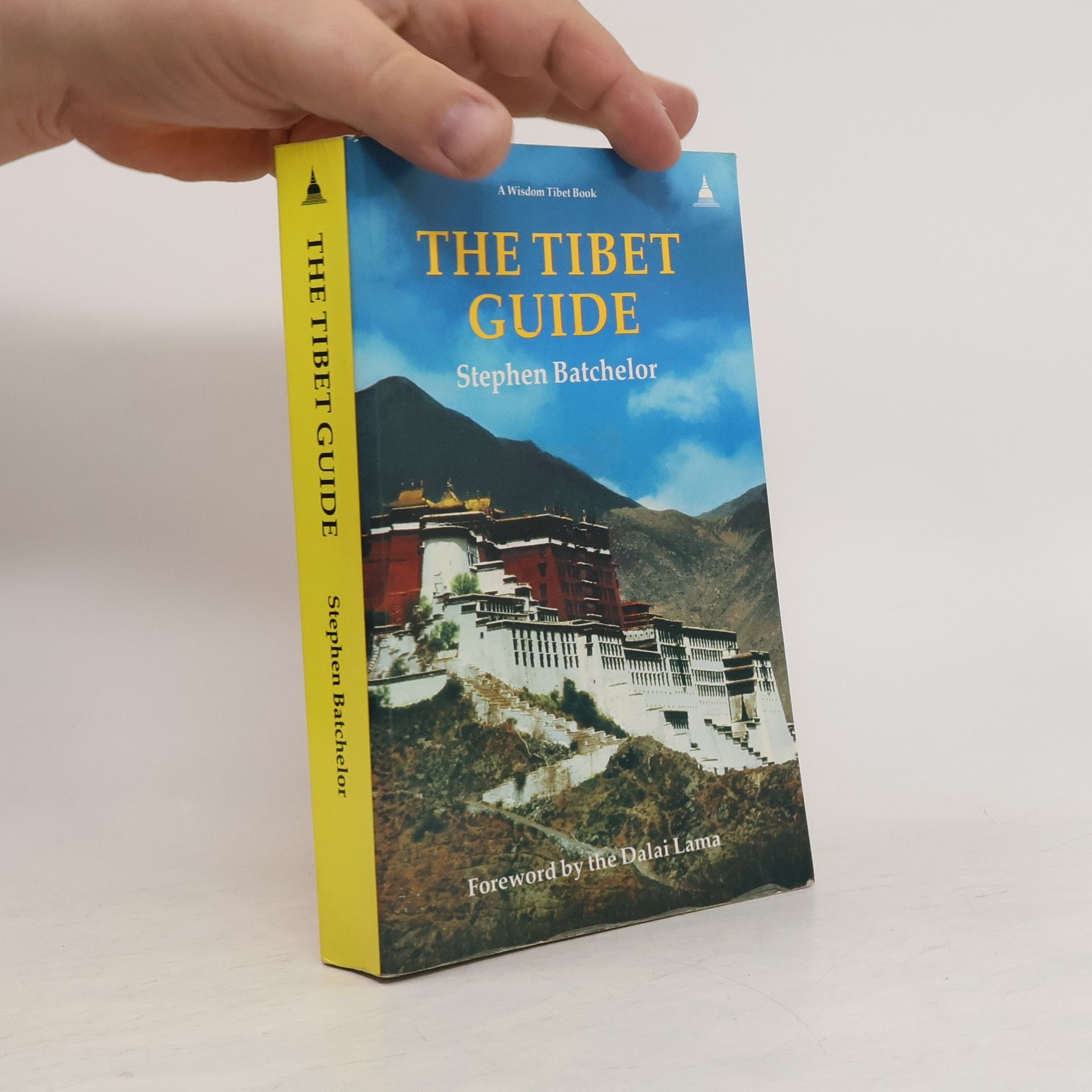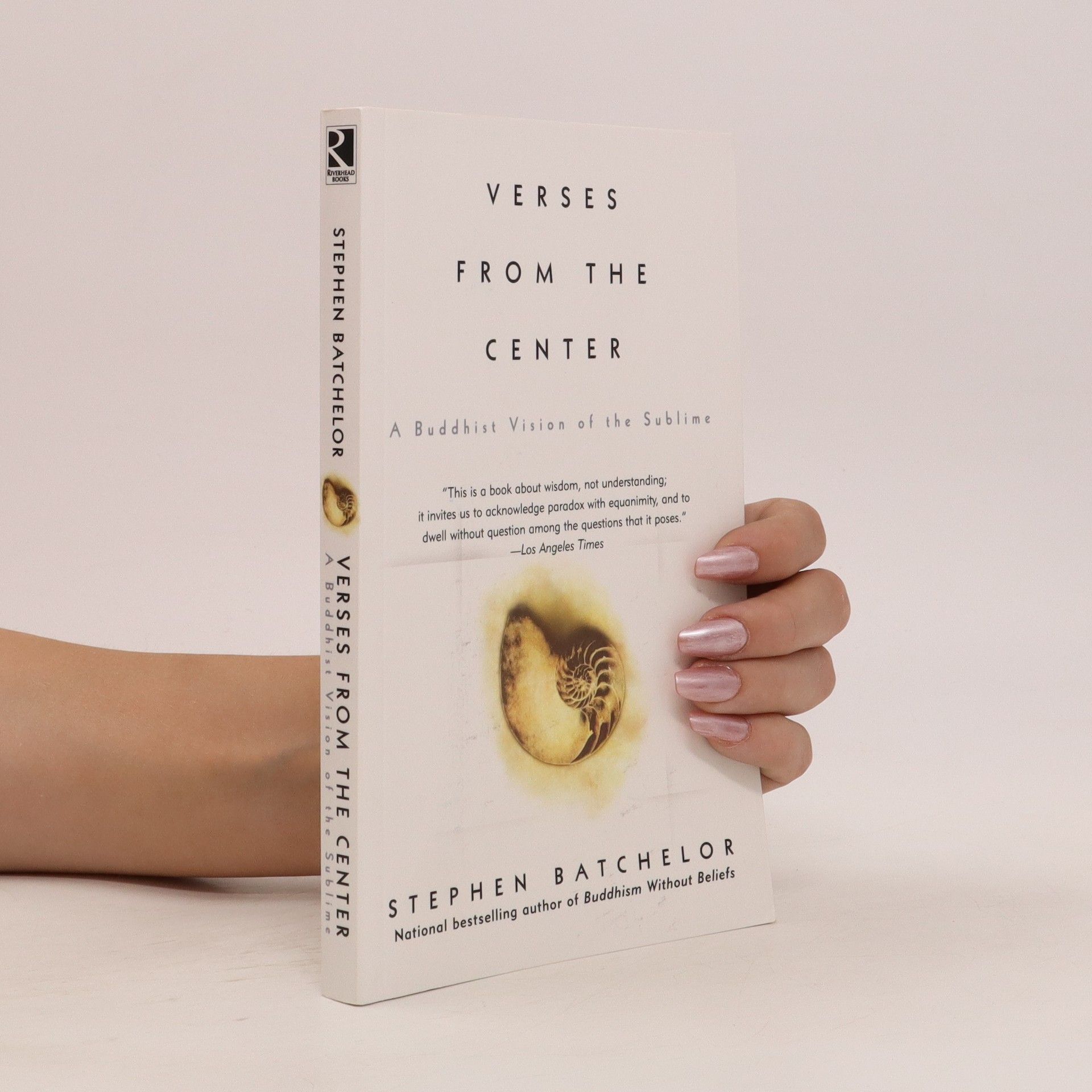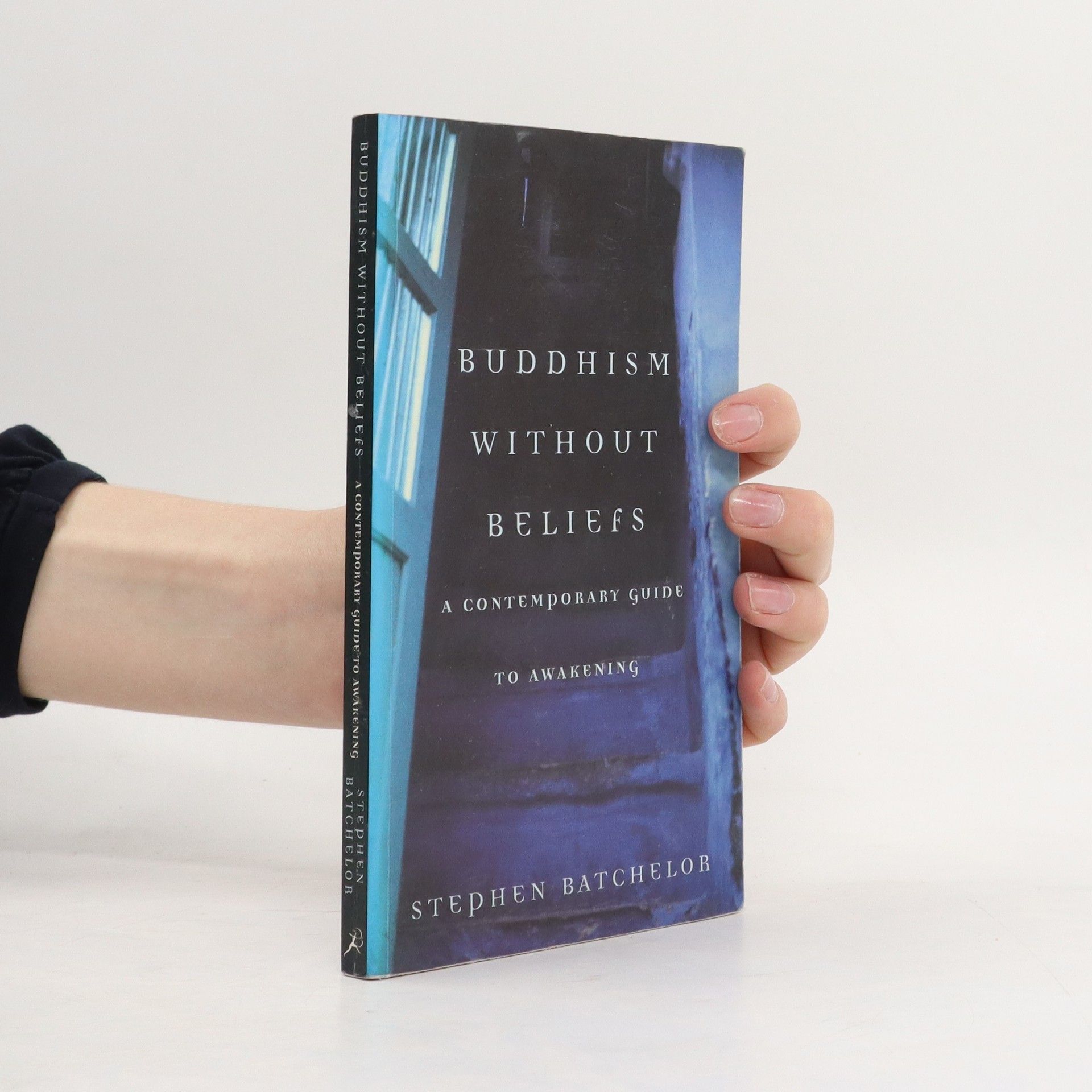After Buddhism
- 400 pages
- 14 hours of reading
A renowned Buddhist teacher's magnum opus, based on his fresh reading of the tradition's earliest texts






A renowned Buddhist teacher's magnum opus, based on his fresh reading of the tradition's earliest texts
Buddhism Without Beliefs presents a new interpretation of Buddhism and proposes realistic, non-religious, Buddhist solutions to the existential anguish that most of us live in.
The understanding of the nature of reality is the insight upon which the Buddha was able to achieve his own enlightenment. This vision of the sublime is the source of all that is enigmatic and paradoxical about Buddhism. In Verses from the Center , Stephen Batchelor explores the history of this concept and provides readers with translations of the most important poems ever written on the subject, the poems of 2nd century philosopher Nagarjuna.
The "best available companion for travelers to Tibet"--The New York Times Review of Books
This exploration of solitude delves into the human experience through four interwoven perspectives: meditation, art, philosophy, and shamanic medicine. Inspired by four ancient Buddhist poems known as The Four Eights, the text begins with the inquiry into the essence of true solitude. Central to the narrative is a study of the inner life of 16th-century philosopher Michel de Montaigne, complemented by the author's own forty-year journey through Buddhist contemplative practices. The author revisits formative psychedelic experiences by recounting participation in shamanic ceremonies involving peyote and ayahuasca. Solitude is further examined through reflections on the works of artists Johannes Vermeer and Agnes Martin, alongside visits to hermitages in India and Korea. Although rooted in Buddhist themes, this work marks the author's first venture beyond Buddhism, aiming to blend insights from Western philosophy, art, and traditional native Indian practices involving mind-altering substances. The book's structure reflects the author's twenty-five years as a collage artist, organized in a "random order" to minimize authorial intention and allow the text to resonate with its own voice.
Nagarjuna gilt als einer der bedeutendsten buddhistischen Denker. Stephen Batchelor hat sein Hauptwerk in eine poetisch zeitgemäße Sprache übersetzt und macht so Nagarjunas Vision einer Freiheit von allen Konzepten und Vorstellungen einem breiten Leserkreis zugänglich. Die Neuauflage des Buches enthält erstmals die tibetische Fassung und eine wortgetreue Übersetzung der Verse als Grundlage der freien, poetischen Fassung.
Stephen Batchelor entdeckt mit 18 in Indien den Buddhismus, wird Mönch und gibt seine Robe nach zehn Jahren zurück. Er sucht nach westlichen Ausdrucksformen für die zeitlose Weisheit des Buddhismus und sieht ihn als Weg zu achtsamem, mitfühlendem Denken und Handeln in einer leidvollen Welt, ohne Dogmen.
Stephen Batchelor ist einer der bekanntesten und profiliertesten (Quer-)Denker des Buddhismus und Autor überaus erfolgreicher Bücher wie Buddhismus für Ungläubige und Bekenntnisse eines ungläubigen Buddhisten. Sein neues Buch Jenseits des Buddhismus ist die Synthese seiner jahrzehntelangen Beschäftigung mit der Frage, wie die Lehre des Buddha in der Moderne verstanden und gelebt werden kann. Was hat der Buddha gelehrt, das über Vorstellungen und Ideen, die Teil des Weltbildes seiner Zeit waren, hinausging und für uns heute noch hilfreich und wichtig sein kann? Jenseits des Buddhismus wirft einen Blick auf die Zeit vor dem Buddhismus, der Zeit des Buddha, bevor seine Lehre zu einer Religion, einem -ismus wurde. Stephen Batchelor entwickelt die Vision eines säkularen Buddhismus, der uns eine undogmatische, praktische und ethische Orientierung für ein gedeihendes Leben in dieser Welt vermittelt.
Die alte Weisheit Buddhas für die Welt von heute: An den Buddhismus muss man nicht 'glauben' – und schon gar nicht an Wiedergeburt und Nirwana. Stephen Batchelor, ein international bekannter Buddhist und Bestsellerautor, befreit die fernöstliche Weisheitslehre vom religiösen Überbau und zeigt, dass sie vor allem eine praktische Anleitung für ein authentisches Leben im Hier und Jetzt ist. Sein neues Werk erzählt die spannende Geschichte seiner lebenslangen Sinnsuche, die nicht nur Buddhisten, sondern auch alle 'Ungläubigen' auf der Suche nach Orientierung fesseln wird. Als Jugendlicher landet Batchelor in den 70er Jahren zufällig in Indien und entdeckt den Buddhismus. Mit 21 wird er Mönch und beschäftigt sich intensiv mit tibetischem und Zen-Buddhismus. Doch bald kommen ihm Zweifel, da die zentrale Vorstellung der Wiedergeburt seinem westlich geprägten Denken nicht zugänglich ist. Seine Glaubenskrise und die Auseinandersetzung mit dem historischen Buddha führen ihn zu der Überzeugung, dass die zeitlose Weisheit des Buddhismus in einer für den Westen verständlichen Sprache vermittelt werden muss. Für ihn ist Buddhismus kein Dogma, sondern ein Weg zu achtsamem, mitfühlendem Denken und Handeln in einer leidvollen Welt – ein Weg, der auch heute bereichern kann. Batchelors Geschichte inspiriert alle, die das stetige Zweifeln und die Auseinandersetzung mit religiösen Dogmen als Teil ihrer Erkenntnis und Spiritualität sehen.